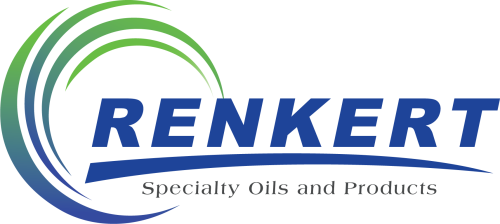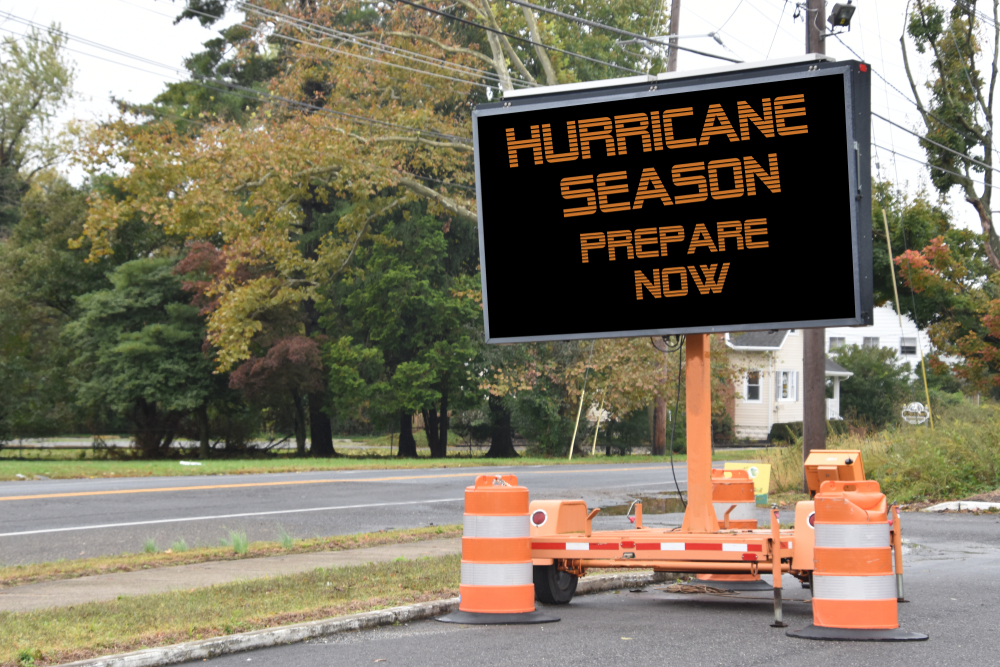As if economic concerns like worker shortages and inflation weren’t worrisome enough, here comes another hurricane season that could threaten specialty oil supply security.
Here are a few “fun” facts about hurricane season 2022:
- The National Oceanic and Atmospheric Administration (NOAA) predicts 14 to 21 named storms
- These include 3-6 major hurricanes (Category 3, 4, or 5) with sustained winds of 111+ mph
- NOAA says we have 65% chance this will be the seventh consecutive above-average hurricane season
And in case you’re wondering how sure they are, the NOAA’s predicted range has had an accuracy of 82 percent over the last 10 years.
Homeowners in hurricane zones have somewhat common-sense ways to prepare, like safeguarding the home and making an evacuation plan.
But businesses don’t have to be in the storm’s path to be at risk. Any business that relies on a steady supply of specialty oil products from these hurricane-threatened regions, especially the Gulf of Mexico, has to be prepared.
Why Hurricane Katrina Still Inspires Us
Though Katrina was nearly two decades ago, the chance of another Category 5 monster hitting the Gulf is increasingly likely. Global warming has contributed to a steady uptick in both the frequency and severity of tropical storms.
And we’ve seen what such a storm can do. If it hits too hard and fast for refineries to orchestrate a planned shutdown, as Katrina did, it can result in months of production delays and the potential to compound the economic catastrophe that comes with the natural one.
Of course, hurricanes aren’t the only natural disaster to prepare for.
- Floods can be from non-hurricane events.
- Tornadoes can do quite a bit of damage to supply lines.
- So can winter storms, like the one in Texas in February 2021.
Events like these can happen at any time. Hurricane season only gives us an additional incentive to revisit contingency plans, as Katrina takes the cake for the biggest, meanest weather event affecting our industry in living memory.
It hit the industries we serve hard. Thermoplastic elastomer (TPE) and EPDM/synthetic rubber manufacturers, food manufacturers, farm operators, household product makers, power suppliers, and many more rely on specialty oils for lubrication and product formulations.
Thankfully, our customers were better off than most. Even more so today. That’s because, with our help and encouragement, they tend to follow the tips below.
How to Maximize Your Specialty Oil Supply Security
Safeguard your supply chain with these six tips.
1. Check your insurance policy.
Do you have supply chain insurance? If not, this is something worth talking to your commercial insurance provider about.
One type of coverage you might consider is called contingent business interruption (CBI) insurance. This may protect you in the event that businesses on which you depend are disrupted by physical property damage.
CBI is limited, however. Broader supply chain coverages can cover related issues, such as:
- Other natural disasters
- Production process problems
- Riots or other disruptive civic action
- Closure of roads, bridges, or other transportation infrastructure
- Public health emergencies, e.g. pandemics requiring quarantine
- Related financial issues, e.g. cash flow problems
We’re not insurance brokers, of course. But we’ve been around long enough that expecting the unexpected is always good policy.
Insurance is just one way to do so. Let’s look at others.
2. Establish a supply chain crisis communication strategy.
It’s vital that your organization is prepared to operate differently in an emergency scenario than it does in day-to-day operations. All channels of communication need to be open.
As supply chain writer Bridget McCrea put it, you need to “drop the silos” to empower more people in your company to talk to your vendors and solve problems.
“[A]n inventory shortage isn’t just the warehouse manager’s or chief procurement officer’s problem; it’s everyone’s problem … be willing to take on responsibilities that may not have always fallen into your area of expertise or comfort zone, e.g. helping to address inventory shortages, and open up the lines of communication between your department and your company’s suppliers.”
The companies that are best prepared for a natural disaster are the ones that have not one individual but many that can communicate with vendors, e.g. their specialty oil supplier.
We try to facilitate this by building close relationships with customer teams. Unlike a purely transactional vendor relationship, in which a purchaser would be our only point of contact, we are consultants who routinely interact with team members on both the business side and in product engineering.
Ideally, any of these team members should feel comfortable reaching out to us in a crisis or vice versa so we can successfully manage the crisis together.
3. Increase your inventory investment.
Redundancy is key to preparing for natural disasters. There’s nothing like a hurricane to turn your perception of inventory as an “expense” into an “insurance policy.”
Prior to Katrina, Renkert Oil had invested significantly in maintaining “hurricane tanks.” These inventory depots provided a backup supply for our regular customers in the case of refinery disruption.
No one could have fully foreseen how bad a hurricane like Katrina would be, compounded by the levee breakage in New Orleans.
But because our customers had partnered with us in this inventory investment, we were able to maintain their access to specialty oil while others were scrambling to find suppliers who still had product.
Having experienced the positive impact this inventory buffer made for our customers, we have increased our investment in hurricane tanks since then. Today, these tanks represent millions of gallons in emergency storage.
4. Diversify storage locations.
The expression “don’t keep all your eggs in one basket” is never quite so poignant as when the “eggs” represent the raw materials on which your business depends.
If all your specialty oil comes from one site, you’re at risk. Especially if that location is in an area where the chance of a hurricane strike is possible.
This is why supply chain diversification is so important. If a natural disaster destroys or impedes access to your essential materials and products in one region, backups in other regions can keep you in business.
Over the years, we’ve established terminals not only in the Gulf, but also in Chicago and Antwerp, Belgium. We maintain a robust inventory at each terminal so that even our customers who don’t or can’t diversify their own storage locations have that added supply security in us.
5. Create logistical contingency plans.
Katrina tested the logistical readiness of every base oil and specialty oil buyer in the region.
Many were prepared for refineries to shut down for a period of time. That had happened before. What few anticipated was how long it would take to regain access to Gulf Coast refineries.
Covid-19 has provided a similar test. If it had come fast and blown over quickly, most companies had contingency plans in place for that. But protracted quarantines and business shutdowns slowed or prevented access to essential materials for far longer than anyone anticipated.
Global pandemics aren’t something we can easily plan for. But we can apply what we’ve learned to prepare better for natural disasters. We need to answer some key questions:
- If a natural disaster takes out the roads or bridges along our planned routes to our supply point, what will our contingency routes or modes of transport be?
- If a large portion of our essential workers stop coming to work due to a natural or economic crisis, what creative solutions are we prepared to try?
- If we lose access to materials we never imagined we could, such as specialized containers, what are some acceptable alternatives?
We talk to our customers frequently about these concerns and strive to provide the answers before disaster strikes.
6. Create a contract account.
Months after Katrina, refineries were still struggling to get up to capacity. Specialty oil buyers were scrambling to find any suppliers with remaining stock.
We’ve always prided ourselves on our ability to serve spot customers. However, we also stand by the principle of prioritizing contract customers. We worked closely with them, asking them not to pull more than they needed so that we could continue to honor the contract terms for all.
And we were able to help out many spot customers who couldn’t find product anywhere else. But that wouldn’t remain the case had the crisis gone on much longer. Renkert Oil drew down our last drop of oil just as Gulf Coast refineries began delivering their first production to us.
The lesson here is that specialty oil supply security often comes down to the relationship you have with your supplier, and who that supplier is. Establishing a contract account with a trusted supplier before disaster strikes is one of the best ways to plan for hurricane season.
Partner with Renkert Oil for Specialty Oil Supply Security
Three things make all the difference in specialty oil supply security every hurricane season: inventory, experience, and integrity. This is what Renkert Oil offers.
- Inventory – We hold millions of gallons of emergency product in diversified regions to keep you supplied during times of crisis.
- Experience – Our logistics experts are creative professionals who will help you create sound contingency plans that will safeguard your business when it matters most.
- Integrity – As much as we welcome new customers, in times of crisis we follow through on our promises to contract customers, always putting them first.
This and every hurricane season, no specialty oil supplier offers you more supply security than Renkert Oil. Reach out today to learn more.

